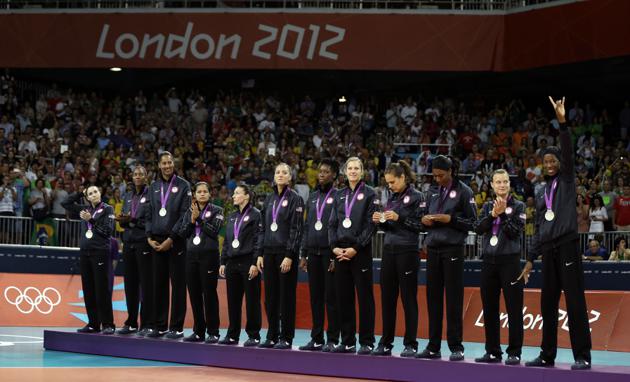
Our mission is to empower and educate the next generation of leaders through mindset training and personal development.
#FindYourBest
COURSES & BOOKS
RESOURCES
FOLLOW US
© 2015-2019 Compete to create LLC | All rights reserved


At the 2012 London Olympics we fell short of our goal of winning gold. It was a painful experience. I didn’t know what was going to happen next for me. I needed to make changes moving forward so that I could be a better version of myself in moments of test. However, with change comes uncertainty, and it was hard to take the leap knowing I had success doing something a certain way in the past. London ended up being my last Olympics, but the work I put in there set the tone for me to be able to transition out of sport.
As an Olympian and professional volleyball player, one of the questions I frequently get asked is “what has it been like for you transitioning from being a professional athlete to being in the corporate world?” We’ve all heard about professional athletes who haven’t been able to make the transition after retiring and a lot of people are curious about what goes wrong. When changing careers in any arena, there are unknowns and it’s how we react to them that makes the difference.
Inherently transitions in life involve navigating stress, uncertainty and change. Think about the greatest stressors in life: career changes, moving, divorce, having children, etc. What if we could get better at moving through these transitions so that they didn’t feel so overwhelming and costly to our soul?
In the athletic world, we invite challenges into our daily preparation so that we build up resiliency and mental hardiness to navigate when times get tough. We need a little stress to challenge the system enough to build skills and resources. In sport, we can influence outcomes, but we cannot control them. Leaning into that notion gives us an opportunity to practice adjusting to unknowns. We all know that change is a necessary part of growth but there is something in us that resists it. On the world’s stage, everyone is working hard, and the margins are thin, so the rate of growth can matter more than talent, in some contexts.
These principles apply to everyone pursuing their best. They are not unique to sports.
Here are some insights I’ve learned for coping with the stress, uncertainty and change that is a part of life’s transitional moments:
The more we can look at stress as an opportunity, rather than a curse, the less it tends to break us down. The next time you feel overwhelmed by something, acknowledge the way you feel, and take a deep breath. Our breath is the greatest reset button we have available to us. Then ask this question: “Is there any other way to look at this situation?” We have a chance to utilize stress as a spring board for growth when we re-orientate the way we perceive the situation.
As athletes, we sometimes fall into traps of wanting to feel 100% prepared for games. We need to know we have exhausted all possible resources to feel a sense of calm about the future, right? The trouble is, things rarely go as planned. When things go awry, and the future becomes uncertain, try using productive self-talk like, “I can adjust” instead of “I am prepared.” The former creates space to let go of wanting to be perfect. It creates the space to feel like no matter what happens, you can meet the demands of the challenge.
Change can bring out the best and worst in each of us. If you’re someone that tends to sway toward the worst, first, get clear on your values and act accordingly. It is easy to act in alignment with our values when we don’t feel stressed. When faced with change, when stress is on board, we tend to revert to some kind of survival mode. What are your guiding principles? Write them down so that you have a reference point for how you want to show up and be in moments of change. Second, ask yourself this: “What can I learn from this right now?” This helps orient your thoughts toward growth and learning, rather than falling into the trap of having a fixed mindset.
If applying these strategies feel uncomfortable, know it’s a process to change your mindset. My hope is that stress, uncertainty and change can become fun endeavors in your life, because you have tools to stay in them and move through them.
With curiosity for what’s possible —
Nicole
Are you in interested in learning how to handle change and uncertainty better? Apply for our Finding Your Best course here.

Our mission is to empower and educate the next generation of leaders through mindset training and personal development.
#FindYourBest
COURSES & BOOKS
RESOURCES
© 2015-2019 Compete to create LLC | All rights reserved
